WATCH: Nikki Haley Says She Never Thought Trump Was ‘Dangerous’ — Except She Said That During 2016 Campaign
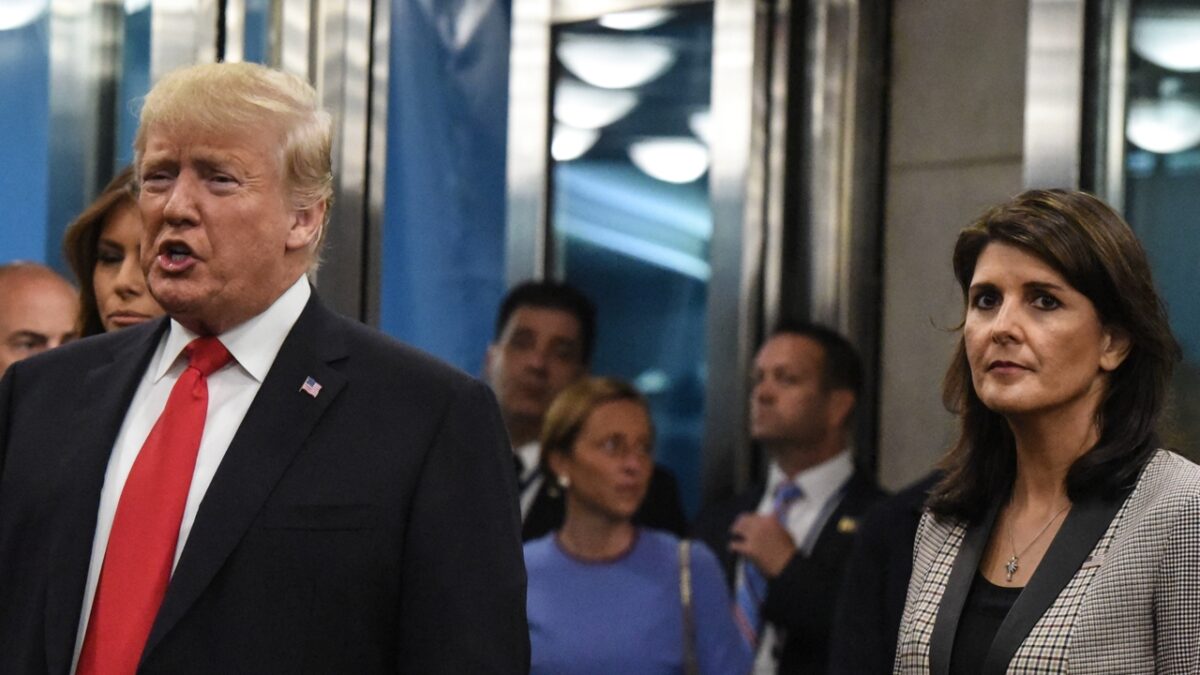
Stephanie Keith/Getty Images
Former Ambassador Nikki Haley defended her past support for Donald Trump by saying she never foresaw the descent into violence that occurred on Jan. 6 — but she warned about Trump’s rhetoric repeatedly during the 2016 campaign, including its potential to incite violence.
Haley took pains to further distance herself from Trump in an interview for a Politico Magazine profile by Tim Alberta, saying Trump would never run again, and that he “went down a path he shouldn’t have, and we shouldn’t have followed him, and we shouldn’t have listened to him. And we can’t let that ever happen again.”
But elsewhere in the interview, Haley repeatedly defended and stood by her past support for Trump by claiming she never saw anything like this coming:
“At the time, I didn’t think that was dangerous,” Haley said. “I didn’t think that there was anything to fear about him. There was nothing to fear about him when I worked for him. I mean, he may have been brash. He may have been blunt. But he was someone who cared about the country. … I still stand by that. I don’t think we should ever apologize for the policies that we fought for and the things that we did during his four years. Since the election—” she stopped herself. “I mean, I’m deeply disturbed by what’s happened to him.”
Haley repeated these sentiments over the course of a two-hour conversation: “Never did I think he would spiral out like this. … I don’t feel like I know who he is anymore. … The person that I worked with is not the person that I have watched since the election.”
That sentiment would be a shock to Nikki Haley from a few years ago. Near the one-year anniversary of the horrific racist terrorist murders of nine Black people in Charleston, Haley directly connected Trump’s rhetoric to that tragedy in an interview with The Associated Press:
Haley, who endorsed then-candidate Marco Rubio ahead of South Carolina’s primary, said she has vocally criticized Trump because “I know what that rhetoric can do. I saw it happen.”
She said she doesn’t think people who support Trump are racist or haters.
“That’s a different kind of anger. They’re upset with Washington, D.C. They’re upset nothing’s got done,” she said. “The way he communicates that, I wish were different.”
Earlier that year, Haley delivered the Republican response to then-President Obama’s 2016 State of the Union address, and earned a lot of political points by calling out irresponsible rhetoric, without naming Trump. But in an interview with Greta Van Susteren, Haley confirmed it was Trump she was talking about.
“Were you talking about Donald Trump?” Van Susteren asked, to which Haley replied “You know, I was talking about a lot of people, certainly Mr. Trump was one of them,” and added that “What we learned last year in Charleston was, we went through a lot of challenges, but the way we got through the Walter Scott issue, the way we got through the Mother Emmanuel issue, the way we got through the thousand year flood was by listening to each other, by making sure that we learned what everyone needed, and then getting there. So I just worry when we get irresponsible with the way that we talk.”
A month later on the campaign trail with Marco Rubio, Haley railed against Trump, saying “I will not stop until we fight a man that chooses not to disavow the KKK,” and telling the crowd “that’s not who we want as president, we will not allow that in our country.”
That was a marked escalation from what Haley said a few weeks after the massacre, when she criticized Trump’s “tone” but said she understood “his frustration.”
Haley isn’t the only Republican potentially suffering from this sort of amnesia. At Thursday’s impeachment hearing, several Republican senators’ past statements warning of Trump’s incitement of violence were submitted as evidence.
New: The Mediaite One-Sheet "Newsletter of Newsletters"
Your daily summary and analysis of what the many, many media newsletters are saying and reporting. Subscribe now!
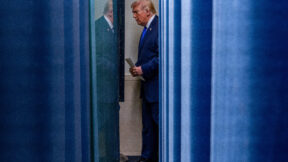
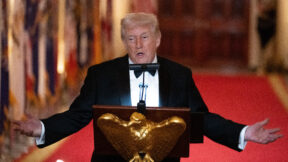
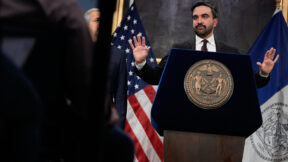
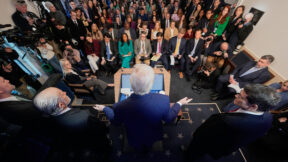


Comments
↓ Scroll down for comments ↓